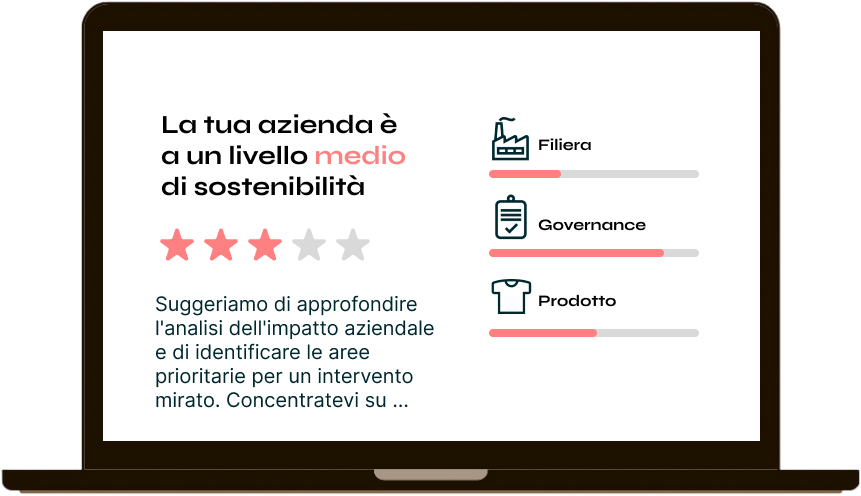The fashion sector facing new business and consumption models
The fashion sector facing new business and consumption models.
Cikis participated as a speaker at the first of the 3 live events in collaboration with Assolombarda, on November 27th.
We talked about sustainability and the dynamics of a rapidly changing market, in which consumer behavior changes but also the ways of doing business.
Various issues were addressed including: the importance of sustainability and the most recent trends, the 2030 Agenda and the SDGs, the changing textile and fashion market, Communication, reputation, sustainability and brand value; the importance of the relationship with stakeholders for fashion sector operators and finally the issue of “materiality”.
Let’s explore together some topics covered during the first webinar.
Rossella Sobrero, founder of Koinètica, a company specialized in the development and communication of corporate responsibility, spoke about the importance of sustainability.
“Sustainability today is a strategic vision. A sustainable company is attentive to its employees, collaborators, to the customer, collaborates with the territory and innovates. Many companies are starting to produce with less resources, with less waste, they are committed to enhancing all kinds of diversity. It is time to rethink a new economic model. This pandemic has also highlighted the relationship between the health of the planet and the health of people. The global model must be rethought in a sustainable way “.
The health emergency has reminded us how we are all interconnected and has led to a profound rethinking of the ways of life and work of people and organizations. For example, flexibility has become a watchword and has been adopted with a certain speed by everyone.
Finally, Rossella Sobrero highlighted the main trends of this change: the linear economy enters a crisis; sustainable finance is growing; the control of the supply chain is increasingly strategic; industry 4.0 gets along with sustainability; artificial intelligence advances; interdisciplinarity becomes important; diversity is transformed from problem into value; impact measurement becomes strategic.
Aurora Magni, prof. at LIUC Università Cattaneo, he described the current state of the textile and fashion market and its relative change.
The numbers of the crisis were first exposed with a 30% reduction in turnover in 2020. The positive aspect, however, is represented by solidarity and industrial reconversions.
The conversion has created a supply chain experience, with laboratories that perform analyzes, with valid standards and protocols.
Capitalizing on this experience as a single company and as a system will be essential to reorganize the supply chain according to specific needs, such as the production of masks.
Aurora Magni then focused on the new consumer trends that go towards safety, protection and well-being with a focus on the materials we use. The consumer is looking for a better quality / price ratio, durability and versatility; want products that are more personalized and with a level of service that qualifies the product itself. Ecological and social sustainability, product traceability and new sensitivities with attention to animals are becoming increasingly important trends.
Giulia Biscossi, founder of Biscossi & Partners, spoke about the importance of communicating sustainability.
Sustainability, communication, reputation and brand equity are strongly correlated.
The evolution of communication has been significant in recent years and has been strongly impacted by factors such as digitization; social media; UGC User generated content / Prosumer, overabundance of content, GenZ / Gen Alpha; transition from marketing to brand journalism.
The role of communication is to be considered a disclosure issue, that is how companies make information accessible to their stakeholders, making themselves transparent. Communicating corporate responsibility therefore becomes crucial.
Finally, Martina Rogato, Cikis sustainability consultant and advisory, spoke about the importance of the relationship with stakeholders when embarking on a path of sustainability and the theme of “materiality”.
The materiality analysis serves to photograph the state of the art of sustainability, it tells us what is fundamental for the stakeholders in terms of sustainability and what their expectations are in this regard and is therefore useful for the purposes of strategic planning, reporting but also of stakeholder engagement.
Conclusions
In this first live event we discussed in detail the theme of sustainability, new business and consumption models.
The next live event will be held on Wednesday 9 December 2020 from 2.30 pm to 4.30 pm and will focus on the following theme: from the product to the supply chain for sustainable fashion.
How to design and manufacture materials (fabrics, accessories, finished garments, etc.) that have a documented content of sustainability and their impact on the supply chain.
www.assolombarda.it/governance/gruppi/moda/appuntamenti/moda-e-sostenibilita-dal-prodotto-alla-filiera-per-la-moda-sostenibile/
Get articles like this and the latest updates on sustainable fashion automatically!
